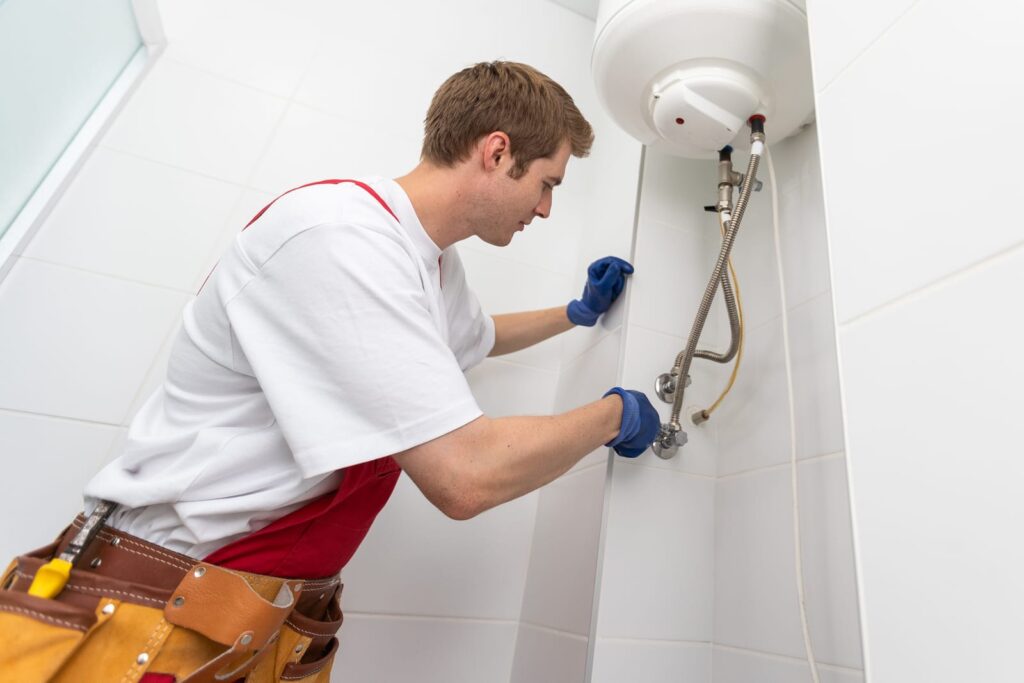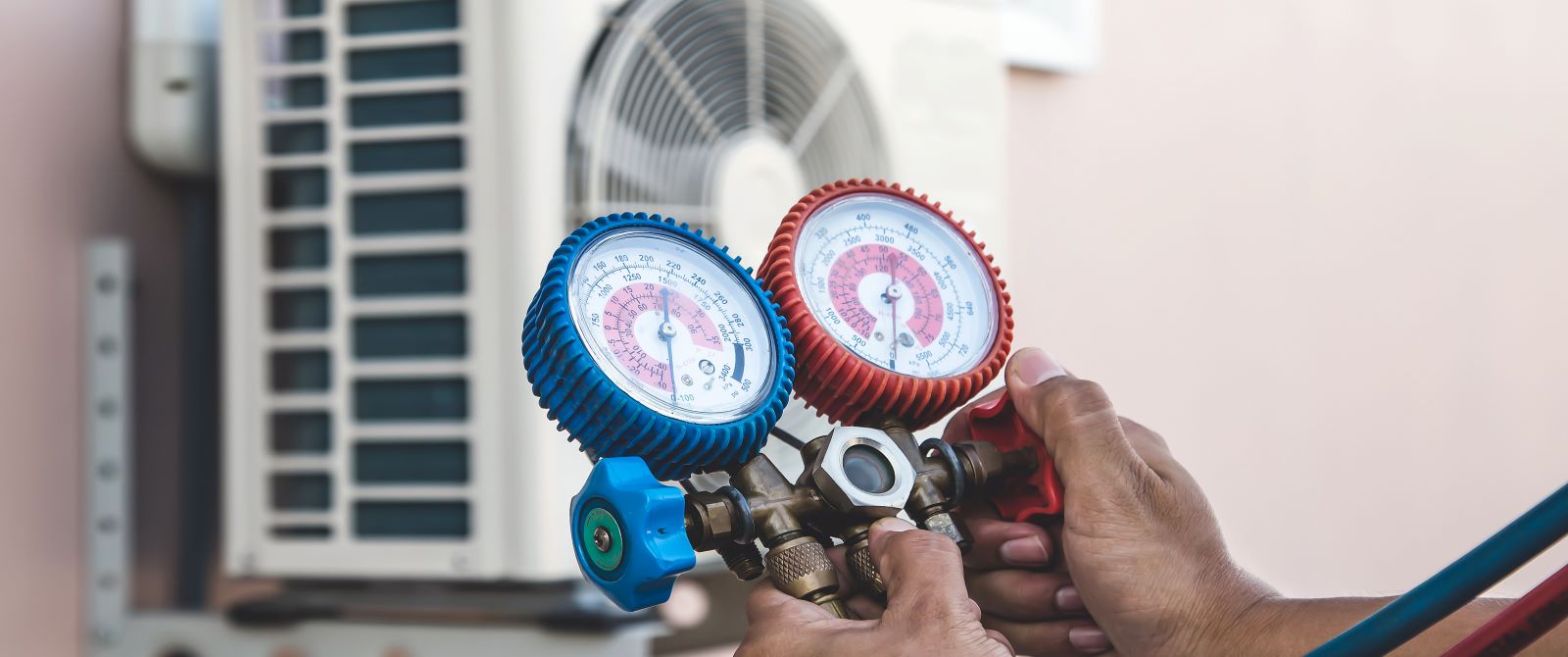The Anderson family (name changed) recently moved to Werribee and quickly realised that their old hot water system wasn’t up to the task. During peak usage times, such as morning showers and evening baths, they would frequently run out of hot water. This was especially frustrating during the colder months when they needed warm water for comfort and hygiene. After consulting with an experienced plumber, the Andersons discovered that their system was undersized for their household needs.
The Importance of Proper Sizing
A well-functioning hot water system is more than just a convenience; it’s a necessity for maintaining a pleasant and healthy living environment. In Werribee, where temperatures can fluctuate significantly, having the right-sized hot water system is crucial to ensure a constant supply of hot water for your household needs.
Choosing the wrong system size can lead to a variety of problems, including:
- Running out of hot water: An undersized system may not be able to meet the demands of your household, especially during peak usage times.
- Inefficient energy consumption: An oversized system can waste energy by heating more water than necessary.
- Costly repairs: A system that is not properly sized can experience strain and breakdowns, leading to expensive repairs.
To avoid these issues, it’s essential to carefully consider your specific needs and choose a hot water system that is the right size for your Werribee home.
Factors Affecting Hot Water System Size
You need to consider several factors that will influence the appropriate size. These factors include:
Household Size and Water Usage Habits
- Number of occupants: The more people living in your home, the greater the demand for hot water.
- Daily water usage: Consider the frequency of showering, bathing, laundry, and dishwasher use. Households with multiple bathrooms or high laundry demands may require a larger system.
Number of Bathrooms
- Simultaneous usage: The more bathrooms your home has, the greater the likelihood of multiple people using hot water simultaneously.
- Peak demand: During busy times, such as mornings and evenings, multiple bathrooms may be in use, requiring a system that can handle peak demand.
Peak Usage Times
- Identify busy periods: Determine the times of day when hot water is most in demand in your household. This could include mornings, evenings, or weekends.
- Ensure adequate capacity: Your system should be able to handle peak usage without running out of hot water.
Water Pressure
- Low pressure: If you have low water pressure, it can affect the performance of your hot water system.
- Booster pump: Consider installing a booster pump to increase water pressure and ensure optimal system performance.
Desired Water Temperature
- Temperature preferences: The desired temperature of your hot water can influence the system’s heating capacity. Higher temperatures may require a larger system.
- Consistent temperature: Ensure that your system can maintain your desired water temperature throughout the day, even during peak usage times.
System Types and Their Size Considerations
When choosing a hot water system, you have several options to consider, each with its own size requirements.
Storage Tank Systems
Storage tank systems are the most common type of hot water system. They store heated water in a tank for later use. The size of the tank is a crucial factor in determining the system’s capacity.
- Factors affecting tank size:
- Household size: Larger households typically require larger tanks to accommodate increased demand.
- Peak usage: If you have frequent or simultaneous hot water usage, a larger tank may be necessary to avoid running out of hot water.
- Desired water temperature: The temperature you prefer can influence the tank size, as higher temperatures may require a larger capacity.
- Insulation: Well-insulated tanks can retain heat more efficiently, allowing for a smaller tank size in some cases.
- Additional storage: If you have a large family or frequent guests, you may want to consider a larger tank to ensure there’s always hot water available.
Instantaneous Systems
Instantaneous systems, also known as continuous flow systems, heat water on demand rather than storing it in a tank. They are typically smaller in size but have limitations in terms of flow rate and temperature stability.
- Size limitations: Instantaneous systems may not be suitable for large households or those with high peak usage. They can struggle to provide enough hot water for multiple simultaneous users.
- Flow rate: The flow rate of an instantaneous system may be limited, especially during peak usage times. This can affect the speed at which hot water is delivered.
- Temperature stability: Instantaneous systems can experience fluctuations in water temperature, especially if multiple users are demanding hot water at the same time.
Heat Pump Systems
Heat pump systems use electricity to extract heat from the air and transfer it to a water tank. They are highly energy-efficient but can require more space than traditional storage tank systems.
- Size requirements: The size of a heat pump system depends on its heating capacity. Larger homes or households with high hot water demand may require a more powerful system.
- Outdoor temperature: Heat pump systems are less efficient in colder temperatures. Consider the climate in Werribee and the need for backup heat sources during extreme weather conditions.
- Space requirements: Heat pump systems typically require outdoor space for the outdoor unit. Ensure you have enough room for installation.
By carefully considering these factors, you can choose the most suitable hot water system size for your Werribee home and ensure a reliable and efficient supply of hot water.
Energy Efficiency and Sustainability
The right hot water system size is not only important for performance but also for energy efficiency and sustainability.
The Impact of System Size on Energy Consumption
- Undersized systems: An undersized system can work harder to meet demand, leading to increased energy consumption.
- Oversized systems: A system that is too large can waste energy by heating more water than necessary.
- Optimal size: Selecting the right system size ensures that your system operates efficiently and avoids unnecessary energy consumption.
Choosing an Energy-Efficient System
- System type: Consider the energy efficiency of different system types. Heat pump systems are generally more energy-efficient than traditional electric storage systems.
- Insulation: Ensure that your system has adequate insulation to minimise heat loss and improve efficiency.
- Efficiency ratings: Look for systems with high energy efficiency ratings, such as Energy Star certification.
- Renewable energy: Explore options like solar hot water systems or hybrid systems that utilise renewable energy sources.
By selecting an energy-efficient hot water system, you can reduce your carbon footprint, save money on energy bills, and contribute to a more sustainable future.
Local Considerations in Werribee
It’s also important to consider the specific factors related to the local climate and water quality.
Werribee’s Climate and Water Quality
- Climate: Werribee experiences a temperate climate with hot summers and mild winters. This can affect the performance of certain types of hot water systems, such as solar systems that rely on sunlight.
- Water hardness: The water quality in Werribee can influence the maintenance and lifespan of your hot water system. Hard water can lead to mineral buildup and scale formation, which can reduce efficiency and increase the risk of system failure.
Recommendations:
- Solar systems: If you’re considering a solar hot water system, ensure that your property receives sufficient sunlight throughout the year.
- Water treatment: If your home has hard water, consider installing a water softener to reduce mineral buildup and protect your system.
- Maintenance: Regular maintenance is crucial to keep your hot water system running efficiently in Werribee’s climate. Pay attention to manufacturer’s recommendations and have your system serviced by a qualified professional.
Government Incentives and Rebates
- Research programs: Explore government programs and incentives that may be available to help offset the cost of upgrading your hot water system.
- Eligibility requirements: Determine if you meet the eligibility criteria for any available rebates or subsidies.
- Application process: Understand the application process and deadlines for government incentives.
By considering these local factors and taking advantage of available government incentives, you can make an informed decision about the best hot water system for your home.
The Importance of Hiring a Qualified Plumber in Werribee
Seek expert advice from a qualified plumber. A professional can provide valuable guidance, ensure proper installation, and help you avoid costly mistakes.
Expert Advice and Guidance
- Accurate sizing: A plumber can assess your home’s specific needs and recommend the optimal system size to meet your requirements.
- System selection: Plumbers have the knowledge and experience to help you choose the most suitable system type based on your lifestyle, budget, and energy efficiency goals.
- Local regulations: Plumbers are familiar with local building codes and regulations, ensuring that your new system complies with all requirements.
Professional Assessment
- Home inspection: A plumber can conduct a thorough inspection of your home to identify any existing plumbing issues or potential challenges.
- Energy efficiency: Plumbers can assess your current energy consumption and recommend ways to improve efficiency through a new hot water system.
- Water quality: Plumbers can evaluate your water quality and recommend appropriate treatment solutions if necessary.
Benefits of Hiring a Qualified Plumber
- Proper installation: A qualified plumber can ensure that your new hot water system is installed correctly, minimising the risk of leaks, malfunctions, and safety hazards.
- Warranty protection: Proper installation can help protect your system’s warranty and ensure that you receive any necessary repairs or replacements.
- Peace of mind: Knowing that your hot water system has been installed by a professional can provide you with peace of mind and confidence in its performance.
- Long-term savings: By selecting the right system and ensuring proper installation, you can save money on energy costs and avoid costly repairs in the future.
Hiring a qualified plumber in Werribee is an intelligent investment. An experienced professional can provide expert advice, ensure proper installation, and help you select the best hot water system for your home. By working with a reputable plumber, you can enjoy the benefits of a reliable, efficient, and sustainable hot water system for years to come.
Finding a Reliable Plumber in Werribee
When choosing a plumber to help you, it’s critical to find someone who is both reliable and experienced in working with Werribee homes. Here are some tips for finding a reputable plumber:
Ask for Recommendations:
- Friends and family: Reach out to friends, family, or neighbours who have recently had plumbing work done in Werribee. They can provide firsthand recommendations based on their experiences.
- Local businesses: Contact local businesses, such as hardware stores, appliance retailers, or real estate agents, and ask for recommendations of reputable plumbers in the area.
Check Online Reviews:
- Google Reviews: Search for plumbers in Werribee on Google and read customer reviews. Pay attention to feedback regarding their professionalism, quality of work, and customer service.
- Plumbing forums and websites: There are online forums and websites dedicated to plumbing where you can find reviews and recommendations from other homeowners.
Verify Credentials:
- Licensing: Ensure that the plumber you’re considering is licensed to operate in Victoria. You can check licensing information on the Victorian Government website.
- Insurance: Verify that the plumber has adequate insurance coverage to protect you in case of any accidents or damage.
- Professional organisation memberships: Look for plumbers who are members of professional organisations such as the Master Plumbers Association of Victoria. This can be an indication of their commitment to quality and professionalism.
Reach Out to a Local Plumber:
- Request a Quote: Contact a reliable plumber working in your area who is experienced in hot water system installations and request a quote. Ask about costs, services offered, and the estimated timeline.
- Ask questions: Don’t hesitate to ask questions about their experience, qualifications, and the specific services they offer.
- Trust your instincts: Choose a plumber who you feel comfortable with and who you believe will provide high-quality workmanship.
Consider Additional Services:
- Plumbing maintenance: If you plan to have regular plumbing maintenance done, you may want to consider hiring a plumber who offers ongoing services.
- Emergency plumbing: Some plumbers specialise in emergency plumbing services. If you’re concerned about potential plumbing emergencies, it’s helpful to have a reliable plumber on call.
Remember, investing in a qualified plumber can save you time, money, and stress in the long run.
The Bottom Line
To sum up, choosing the right hot water system size for your Werribee home is crucial for ensuring optimal performance, energy efficiency, and comfort. By carefully considering the factors discussed in this guide, you can make an informed decision that meets your specific needs and preferences.
Key factors to consider include:
- Household size and water usage: Evaluate the number of occupants and your daily hot water needs.
- Number of bathrooms: Consider the potential for simultaneous water usage and peak demand.
- Peak usage times: Identify the busiest times of day for hot water use and ensure your system can handle it.
- Water pressure: Assess your water pressure and consider the need for a booster pump if necessary.
- Desired water temperature: Determine your preferred water temperature and select a system that can meet your needs.
- System type: Evaluate the different types of hot water systems and their suitability for your specific situation.
- Energy efficiency: Consider factors such as system type, insulation, and efficiency ratings.
- Local considerations: Take into account Werribee’s climate, water quality, and government incentives.
Hiring a qualified plumber in Werribee is vital for selecting and installing the right hot water system. An experienced professional can provide excellent advice, assess your individual needs, and ensure proper installation for optimal performance and energy efficiency.
By following these guidelines and working with a reputable plumber, you can make an informed decision and enjoy the benefits of a reliable and efficient hot water system in your Werribee home.


